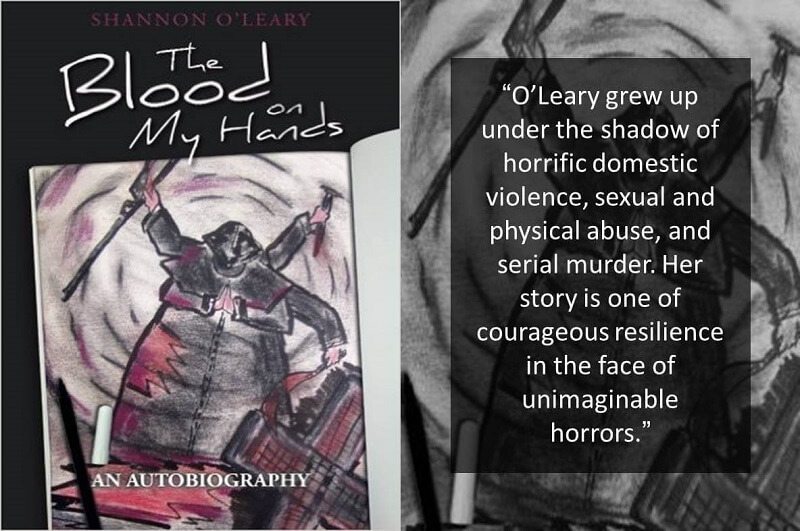Crime recording within police forces has dramatically changed over the last 30 years. With the development and implementation of computerized systems and intelligence recording programs, vast amounts of data can now be recorded. However, this, in turn, has increased the potential for mistakes in how crimes are recorded and logged which can go unnoticed.
Crime recording has been a controversial issue, particularly in light of data indicating sharp increases in criminal acts and especially violent crime across the country. Figures released by the Office of National Statistics (ONS) for crime in England and Wales for the year ending March 2016, show that police recorded 4.5 million offenses, an annual rise of 8% compared to 2015. Furthermore, these latest survey figures show that an estimated 15% of adults aged 16 and over were a victim of at least one crime over 2015/16.
The difficulty is determining whether these statistics do reflect an actual rise in crime being committed, or simply an improvement in crime recording. Authors of the Crime Survey for England and Wales which collected these statistics have said the data “is not considered a reliable indicator of trends in crime” and have focused instead on the improvement of how crime is actually recorded by police forces.
During the period between 1995 to 2002, a series of reviews, audit commissions, and reports were made focused on crime recording across police forces in England and Wales. These included the Tackling Crime Effectively Management Handbook produced by the HMC Audit Commission in 1995 and HMIC report On The Record published in 2000. By 2002 the National Crime Recording Standard (NCRS) had been created to ensure a greater level of consistency across police forces in how crime was being logged and categorized.
What also occurred concurrently during this time period was the development of police performance measures and more governing bodies checking on statistical reports and targets, putting the spotlight firmly on the operations of the police and how they were logging and proceeding with the crime within their areas.
Crime Recording Audit
An extensive analysis of how crime is recorded within England and Wales was carried out by Her Majesty’s Inspectorate of Constabulary (HMIC) and published in their report Crime Recording: Making The Victim Count in November 2014.
The audit covered the period between December 2013 and August 2014 and looked at the way 43 police forces in England and Wales record crime data. They examined over 8000 reports of crime to these police forces. When a crime is reported to the police, it is logged and categorized electronically by either a police officer or a police staff member. It is estimated that over 800,000 crimes a year are ‘under-recorded’, in other words not correctly logged within these computer systems, amounting to 19% of all crimes.
The key findings from this audit report were:
- Public surveys suggest 95% of people agreed it was important that all crimes reported to the police are recorded correctly but only 66% had faith that this was being done.
- How well police forces were recording crimes varied across the 43 forces audited. Some showed excellent practices whereas others did not.
- Violent and sexual offenses were found to be less likely to be recorded than other types of crime. On average 25% of sexual offenses and 33% of violent crime reported to the police every year is not being recorded as a crime.
- Mistakes in crime recording were also found, where crimes had been recorded accurately initially but were then removed from the system as a ‘no-crime’*. In 3246 cases where a crime had been canceled from the system and marked as no crime, 1 in 5 was an incorrect decision and a crime had in fact occurred.
- When a reported crime had been marked as a no-crime, the victims of that crime were not always informed. In over 25% of these cases, the victim had not been told indicating that victims of crimes still think their cases are being investigated when in fact they are not.
- This error, however, represents only 4% of all the crimes recorded and classified, with the correct decisions on crime recording being made 96% of the time.
- Looking at why so many decisions in this regard are being made incorrectly, the audit found 39% of the 8600 officers and staff asked who had responsibility for making crime-recording decisions, said that pressures for time and performance were influencing these decisions.
- There are clear guidelines and rules in place for the correct, stable, and consistent recording of crimes by the police. The mistakes and failures found in this audit have been attributed mainly to problems within the leadership and supervision of officers and staff and poor understanding and knowledge of the rules which are in place.
- Recommendations for standard training for all officers and staff who are involved with crime recording and computerized systems have been made.
Improvements are being made and overall police forces responded well to the audit and are proactively addressing the issues raised and where work is required.
The development of the internet and open communication platforms such as social media, private chats, video messaging, and emails has opened up an entirely new channel for crime. Cybercrime is now a huge concern across the country and it is one which police forces are playing catch up with.
Fraud, theft, grooming, harassment, mass-marketing, indecent images – all are crimes that have now exploded in new forms through “cyber-enabled crime” (See Cyber-crime: A review of the evidence, Home Office Research Report, 2013). There is no doubt that these cyber-enabled crimes are not as well recorded or managed as more traditional crimes are. Furthermore, the true extent of cybercrime is still unknown and it poses plenty of challenges for police crime recording from how to categorize such crimes to victim numbers and which jurisdiction the crimes fall within.
“The first duty of the police is to protect the public and reduce crime. A national crime-recording rate of 81 per cent is inexcusably poor. Failure properly to record crime is indefensible. This is not about numbers and dry statistics; it’s about victims and the protection of the public.” – Tom Winsor, Her Majesty’s Chief Inspector of Constabulary
Police crime recording is a human action where an officer or member of staff takes the details of the crime and makes decisions on how it should be recorded on the electronic system. This includes which category it should go in and this itself can produce inconsistencies across police forces.
Despite the rules and regulations in place about how this should be done, they are complex and can be interpreted and applied differently by different people depending on the circumstances and details of the crime itself. This is a prominent area of criticism within the issue of police crime recording and one which is increasingly trying to be addressed.
A consistent approach as much as possible across police forces is crucial if these kinds of audits and statistics can really be meaningful and useful and more importantly, accurate.
*No-Crime: refers to an incident that was initially recorded as a crime but has subsequently been found not to be a notifiable crime on the basis of additional verifiable information.
- Barrett, D. (2016) Violent Crime Jumps 27 Per Cent in New Figures Released by the Office for National Statistics. The Telegraph. Published 22 Jan 2016
- HMIC (2014) Crime-Recording: Making The Victim Count. The final report of an inspection of crime data integrity in police forces in England and Wales. Published Nov 2014
- Office for National Statistics (2016) Crime In England and Wales: Year Ending Mar 2016. Release Date: 21 July 2016
- Povey, K. (2000) On The Record: Thematic Inspection Report on Police Crime Recording, the Police National Computer and Phoenix Intelligence System Data Quality. HM Inspectorate of Constabulary.
Guy, F. (2016, Aug 23). To what extent can police-recorded crime information be trusted?. Crime Traveller. Retrieved from https://www.crimetraveller.org/2016/08/police-recorded-crime-information/




An interesting article! It’s so important to record every reported crime, if for no other reason than statistics. Your reminder that an increase in crime rates might also be due to more thorough recording is well taken.
Hi Ann Marie, thanks, I am glad you found it interesting! It’s a difficult area I think with such a range of crimes now taking place and trying to implement a consistent system for these to be logged correctly and accurately. I do think it’s interesting that recent crime rate statistics could in fact be reflecting better recording and therefore more crimes being logged and categorized rather than a true increase in crimes being carried out.
The problem is of course that without crime recording taking place fully and correctly, it is going to be very hard to get a true picture of the crime that is taking place in different areas. I was advised the other day in regards to this article that the Home Office has committed to a full overhaul of these current systems with a view to trying to standardize practices for crime recording within England and Wales, so it will be interesting to see how that progresses.
This is a very interesting website of the police recordings of crime and how the police do this on their database, I am a crime writer, and a member of The Freelance Writers Association, I love writing and always have loved writing, because I would like to be able to write for the Police Magazine on Serial Killers.